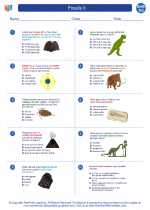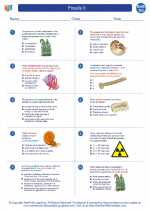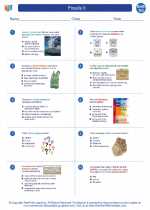Heterotrophs
Heterotrophs are organisms that cannot produce their own food and must obtain nutrients from other organisms. They rely on consuming organic compounds produced by other organisms to meet their energy and nutrient needs.
Types of Heterotrophs
There are several types of heterotrophs, including:
- Herbivores: consume plants for energy
- Carnivores: consume other animals for energy
- Omnivores: consume both plants and animals for energy
- Detritivores: consume decaying organic matter
- Parasites: rely on a host organism for nutrients
Heterotrophs and the Food Chain
Heterotrophs play a crucial role in the food chain by obtaining energy and nutrients from autotrophs (organisms that can produce their own food, such as plants) and transferring those nutrients to other organisms through consumption.
Importance of Heterotrophs
Heterotrophs are essential for the cycling of nutrients in ecosystems. They help decompose organic matter, regulate population sizes of other organisms, and contribute to the overall balance of ecosystems.
Study Tips
When studying heterotrophs, it's important to focus on the following key points:
- Understanding the different types of heterotrophs and their roles in ecosystems
- Exploring the relationships between heterotrophs and autotrophs in the food chain
- Recognizing the importance of heterotrophs in nutrient cycling and ecosystem stability
By mastering these concepts, you'll have a solid understanding of the role of heterotrophs in Earth's ecosystems.
.


